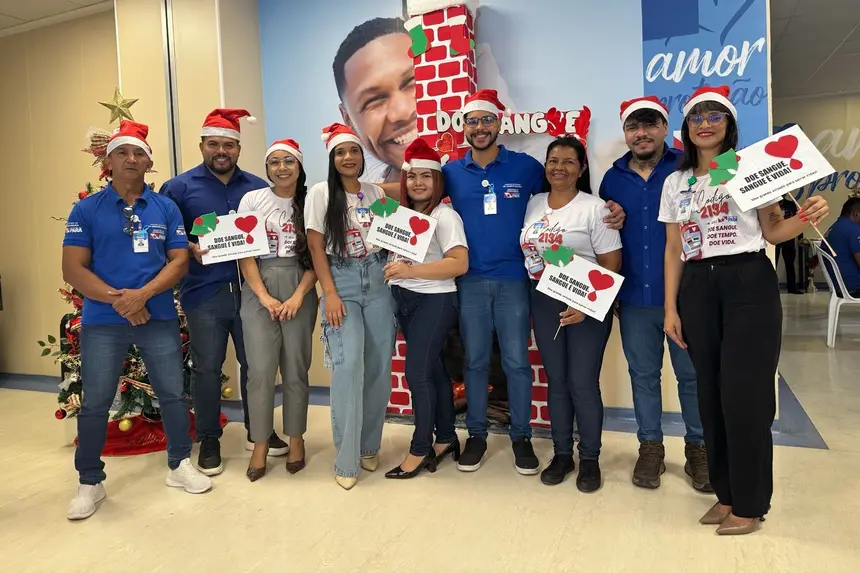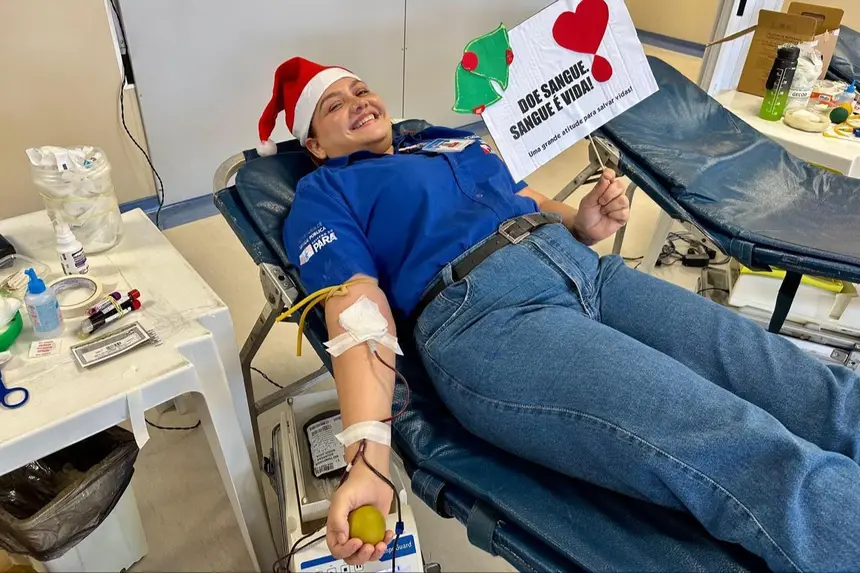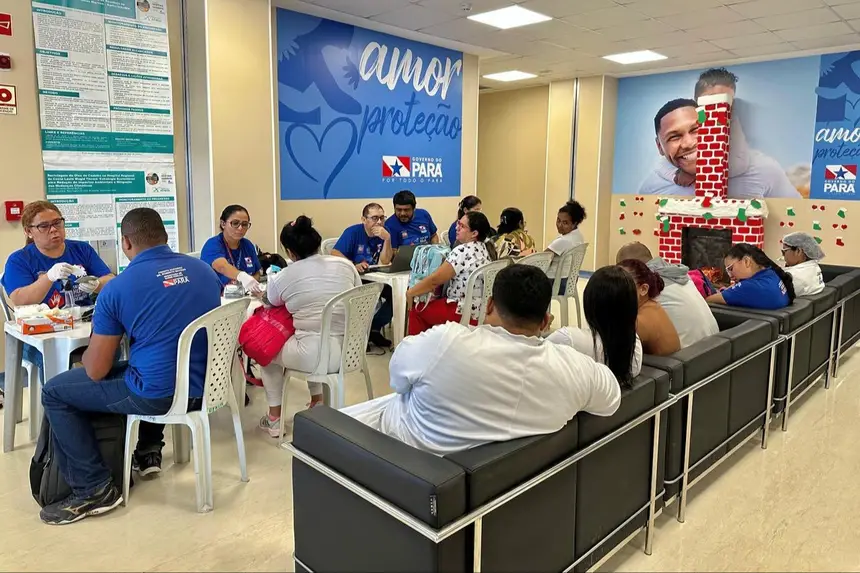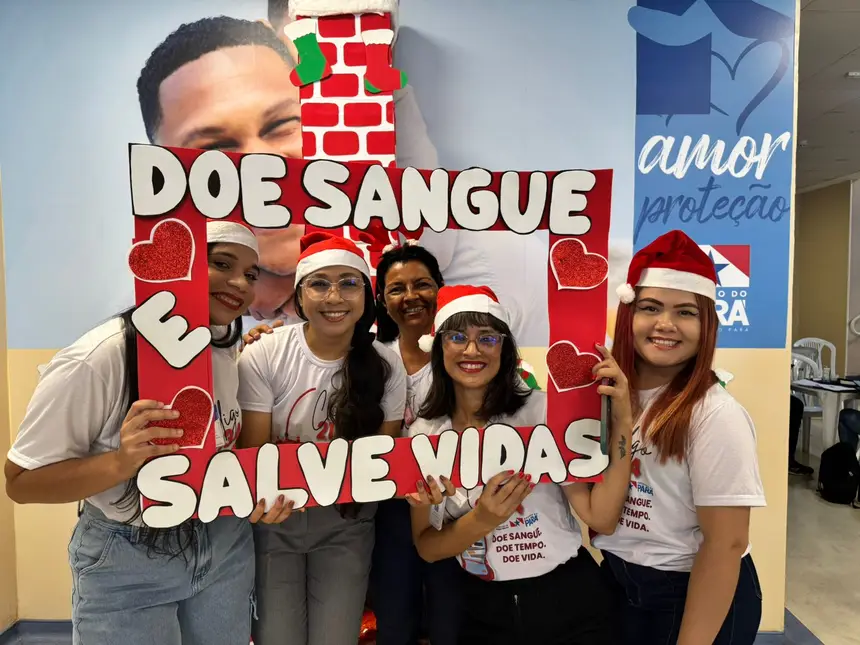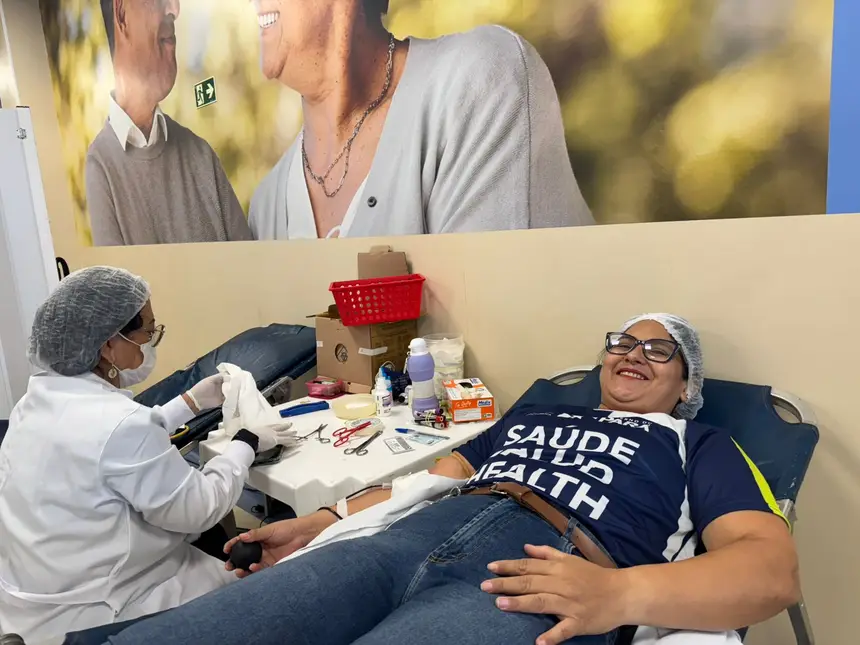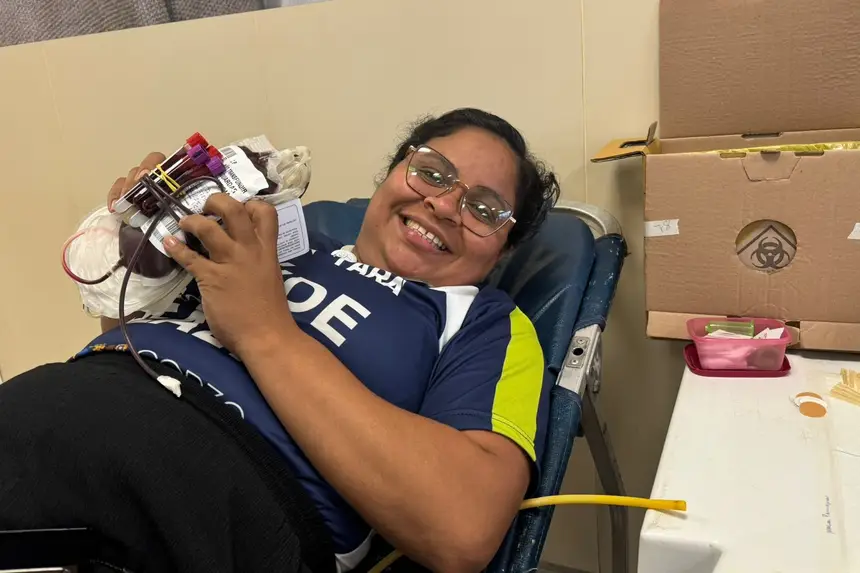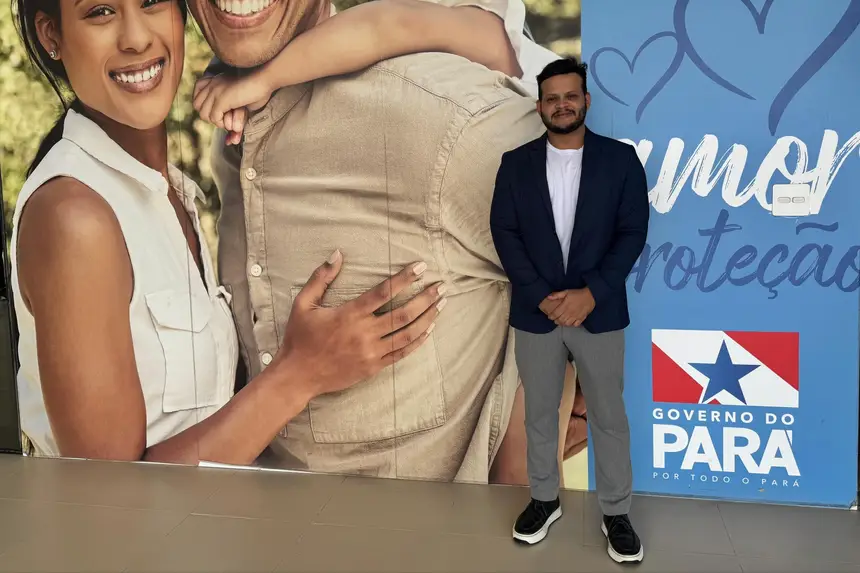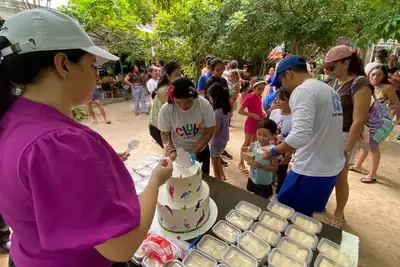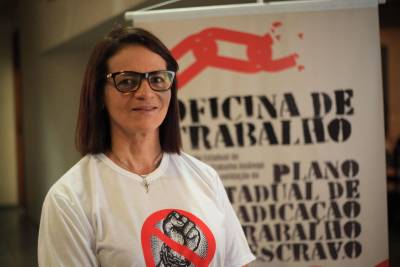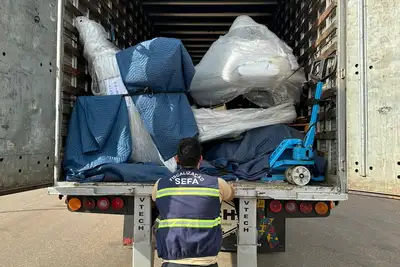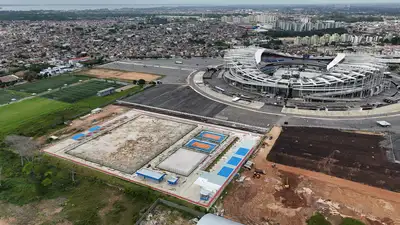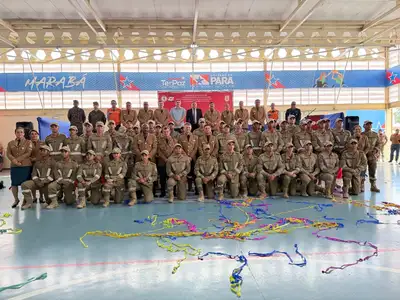PSRM strengthens Hemopa's stock with its third blood donation campaign of this year
The campaign had 113 participants and collected 88 bags of blood components, which will benefit 352 people and contribute to maintaining the stock of the Hemopa Foundation this year-end.
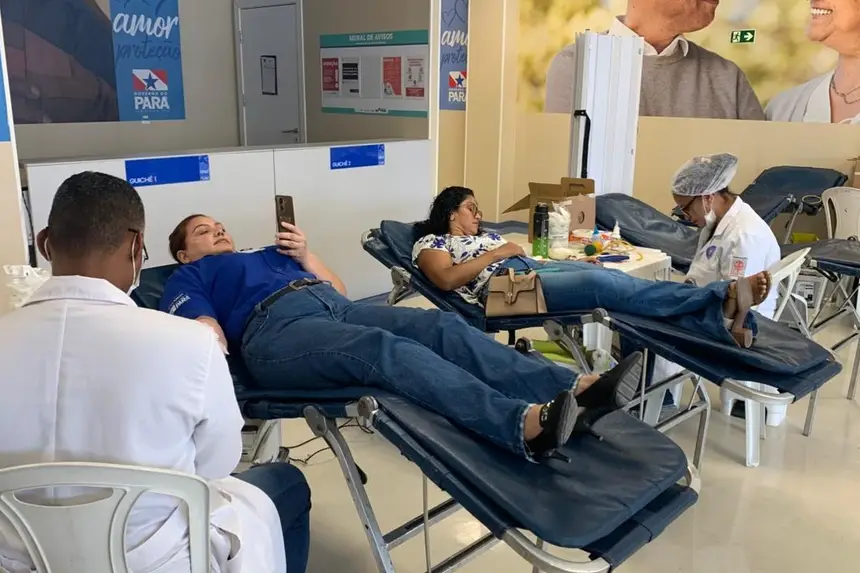
In a Christmas atmosphere, the Dr. Roberto Macedo Emergency Room (PSRM), located on Augusto Montenegro Avenue, held its 3rd Internal Blood Donation Campaign of 2025 at the health unit this Wednesday (26). The event, held in partnership with the Pará Hemotherapy and Hematology Center Foundation (Hemopa), coordinated by the Transfusion Commission and the Humanization Working Group (GTH) of the hospital, had 113 participants and collected 88 bags of blood components, which will benefit 352 people and contribute to maintaining the stock of the Hemopa Foundation this year-end.
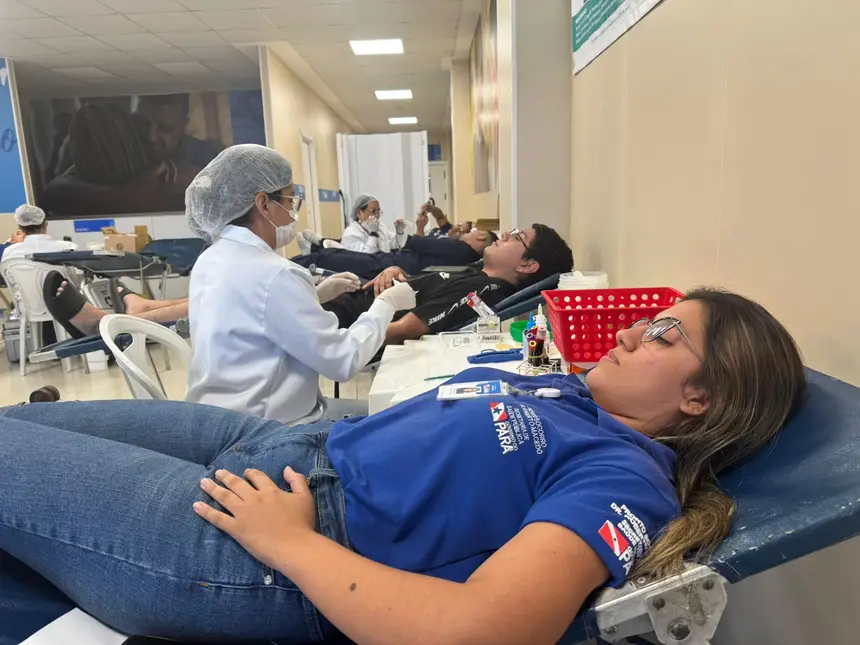
André Santos, a resident of the Bengui neighborhood, made his first blood donation after receiving an invitation from a PRSM employee. He spoke about the feeling he had when he learned that his donation could contribute to the maintenance of the lives of four people. "It's a very good feeling to know that I am contributing to such a noble cause, helping with health, and even saving people's lives with just one donation. I had always wanted to donate blood, but I lacked the incentive, which came when I met someone who works here at the Emergency Room, who invited me to participate in the campaign. I confess that from now on, I intend to continue donating blood," the donor assures.
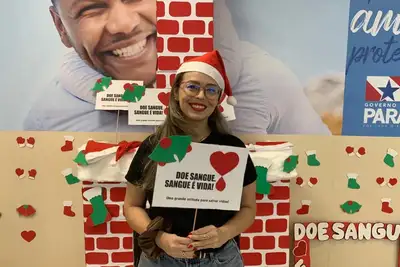
The social worker of the Blood Donor Recruitment Management of the Hemopa Foundation, Vanessa Pimentel, emphasizes that internal blood donation campaigns are important for retaining repeat donors and also for encouraging other people to become blood donors.
"One of the major challenges for Hemopa is to encourage people to be repeat donors. So, when the hospital consolidates a donor recruitment effort, it greatly contributes to the stock, as it encourages regular donations. This is the third campaign of 2025 at PSRM, and I emphasize that with these campaigns, we are already forming repeat donors with the help of the employees, who mobilize and do an important internal job of encouraging blood donation," highlights the social worker.
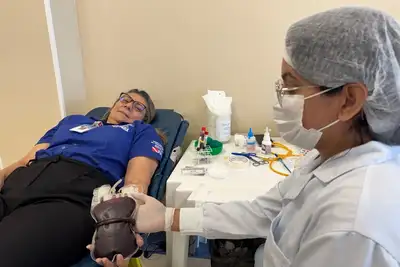
A personal experience was the reason why environmental engineer and PSRM employee, Eurides Barata, became a blood donor when her daughter needed to undergo a high-complexity surgery, spending two days in the ICU, precisely for a blood transfusion. "Until my daughter needed blood for a transfusion, I had not realized the importance of this act of solidarity, but starting in 2015, I became a donor because I felt it firsthand, I saw myself on the other side, and since then, I make a point of donating blood and bone marrow, and serving those who need this gesture of solidarity to continue living," points out the employee.
According to the general director of PSRM, Carlos Vinícius Ribeiro Quadros, it is important to support Hemopa with internal campaigns, which are already part of the hospital's calendar, aiming to form repeat donors to replenish the blood bank stocks of HEMOPA and strengthen the state blood network.
"We are always encouraging our employees to become repeat donors so that Hemopa's stocks are always replenished, since, as a health unit, a reference in urgent and emergency clinical care, we use the stock of the agency a lot, with the campaigns being a way to compensate and give back for the support we have to serve the population that uses the services we provide," concludes the director.
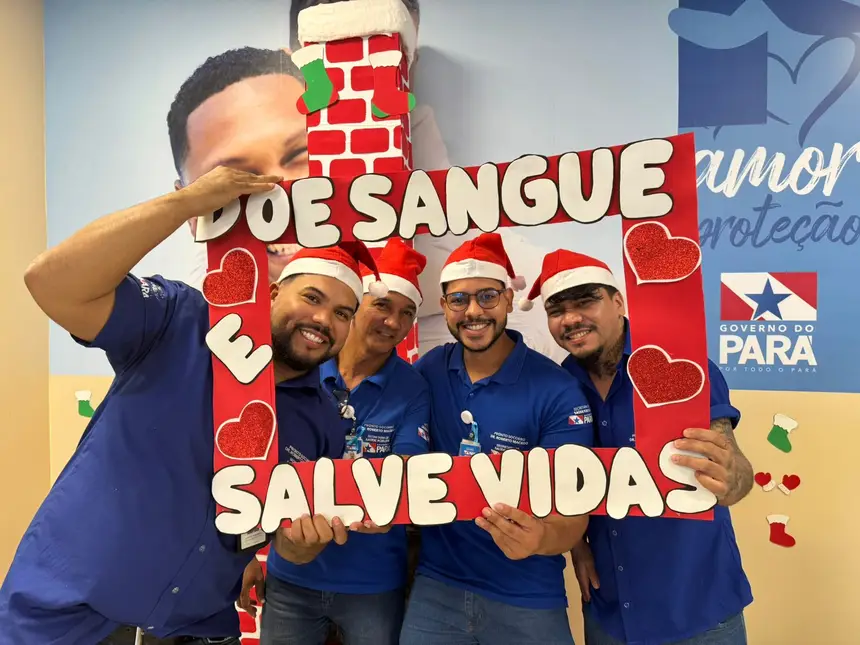
Service: Managed by the Acqua Institute, in partnership with the State Department of Public Health (Sespa), PSRM, located on Augusto Montenegro Avenue, Parque Guajará neighborhood, in the Bengui region, has established itself as a symbol of the reconfiguration of public health in Pará, providing urgent and emergency clinical care, operating 24 hours a day, addressing critical cases in specialties such as general surgery, vascular, pediatric, thoracic, bucomaxillofacial, and neurosurgery, including minimally invasive procedures performed via videolaparoscopy.


